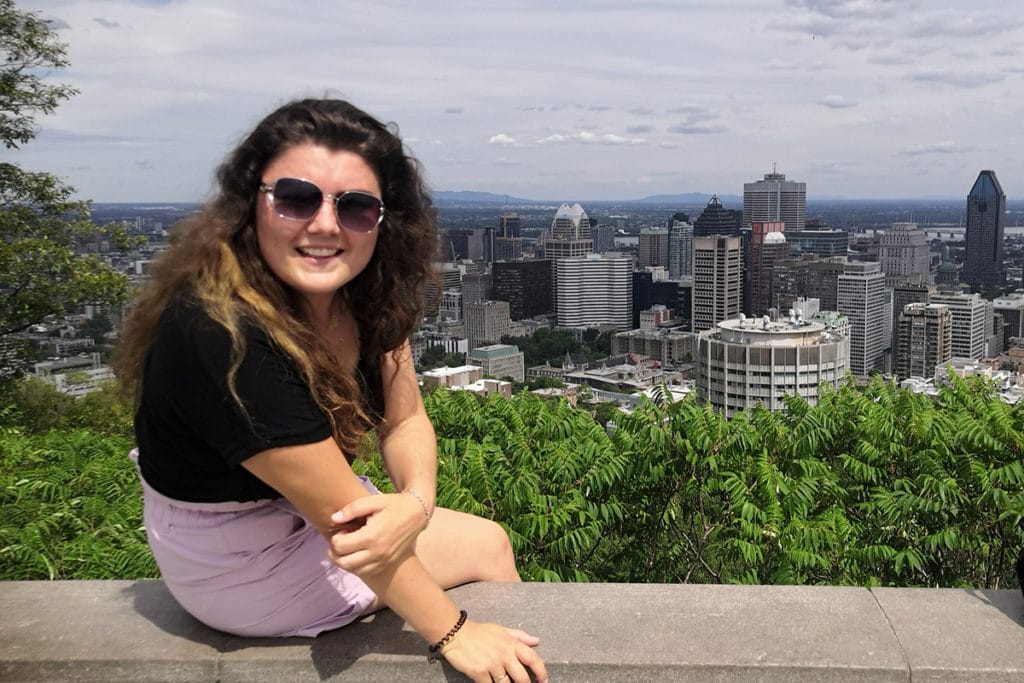Future Canadian immigrants fear having to leave jobs as IRCC deals with backlog
Immigration, Refugees, and Citizenship Canada (IRCC)'s pause on Express Entry invitations to Canadian Experience Class (CEC) candidates since September is forcing some to quit their jobs and even leave Canada.
These candidates have at least one year of Canadian work experience and about 90% are already in Canada. During the pandemic, IRCC issued more invitations to CEC candidates than any other Express Entry-managed program. IRCC invited CEC candidates to apply for Canadian immigration about every two weeks, and in large numbers. In early 2021, the department invited every single CEC candidate in the Express Entry pool to apply. This draw resulted in more than 27,000 invitations and was part of IRCC's effort to land a record 401,000 newcomers in 2021.
Sasha (last name withheld), a marketing professional in Toronto, said she felt certain she would receive an Invitation to Apply (ITA) when she put her profile in the Express Entry pool in September. Express Entry works on a points system called the Comprehensive Ranking System (CRS). IRCC invites the top-scoring candidates to apply for Canadian immigration through bi-weekly Express Entry draws.
Discover if You Are Eligible for Canadian Immigration
Sasha had a CRS score of 476, more than enough to receive an ITA in any CEC-specific draw held in 2021 before the pause.
"I was 100% sure that in two weeks I'm gonna get it," Sasha told CIC News, "Then it's not happening, and then it's not happening again—and every two weeks I'm getting more and more disappointed."
Without the ITA, she cannot apply for permanent residence as an Express Entry applicant. After her work permit expires, she will lose the right to work in Canada, unless she can find another work permit or permanent residency pathway.
When Express Entry candidates get an ITA, they have 60 days to respond with their formal immigration application. Once they get an Acknowledgement of Receipt (AOR) from IRCC, if they are in Canada, they can use it to apply for a Bridging Open Work Permit (BOWP). They cannot get a BOWP if they are applying from outside Canada, even if they are applying as CEC candidates.
The BOWP allows them to keep working in Canada while they wait to receive a decision on their application. It is especially useful for temporary residents who are in Canada on work permits that cannot be renewed or extended like the Post-Graduation Work Permit (PGWP) or the Working Holiday Visa.
Like many CEC candidates, Sasha is in Canada on a PGWP. She worries that if her legal status runs out, she will be forced to leave her job and either have to stay in Canada on a visitor's visa and live off her savings, or go back to Ukraine, which she does not want to do.
"If I’m here and I'm getting the invitation I can apply for a bridging work permit and keep working," Sasha said. "But if I am [in Ukraine] and I apply from there I'm not able to come back. I will need to stay there for a year or so to wait for my PR card... It's gonna be eight months, 12 months, maybe more, maybe less...It's the uncertainty that kind of scares me."
A recently-released internal memo from November suggested that IRCC would pause draws for CEC, Federal Skilled Worker Program (FSWP) and Federal Skilled Trades Program (FSTP) candidates until it could meet its processing standard of six months for all Express Entry-managed programs.
The memo said that since the Express Entry backlog was high enough to meet the immigration targets previously set for 2021-2023, IRCC would not need to hold a draw for CEC, FSWP, nor FSTP candidates "for at least the first half of 2022." Express Entry draws would only continue for Provincial Nominee Program (PNP) candidates.
CIC News spoke to two people for this story who requested to remain anonymous. Both are PGWP holders in Canada, one eligible for CEC, the other eligible for the FSWP. Canada has not held a FSWP draw since December 2020.
"I am grateful to the people of Canada for allowing us to call this great nation our home and to the employers who let us work to fulfill our Canadian dream but no one understands how much it all takes a toll on a person's mental stability," the FSWP candidate, who works for a municipality in Saskatchewan, wrote in an email. "How difficult is it for anyone to realize that we (FSW inland) are already here, same as CEC applicants, and are working and contributing towards the economy of Canada."
The CEC candidate says she and her husband do not know how they will manage expenses in Canada if their PGWP eligibility runs out and they are forced to quit their jobs. PGWP holders have all graduated from a Canadian post-secondary, meaning they have paid international student fees.
"We have invested so much money thinking we would be a permanent resident here," the CEC candidate said in a phone interview. "If you look until last year, CEC was the main option for the international students who can actually become a resident here."
How this happened
In 2020, the pandemic forced the border to close and IRCC operations to shut down. As a result, Canada only admitted 184,000 newcomers in 2020, far short of its immigration targets.
In order to make up for the lost year, Canada set an ambitious target in 2021 of admitting 401,000 new immigrants. Of these, 108,000 were expected to come through Express Entry.
To meet these targets amid travel restrictions, IRCC invited only CEC and PNP candidates in its Express Entry draws. No FSWP or FSTP candidates were invited in 2021, unless they had a provincial nomination.
Canada also created a new immigration pathway for essential workers and international student graduates, the Temporary Residence to Permanent Residence (TR to PR) pathway. This would allow the government to land about 90,000 newcomers who had been working in Canada during the pandemic.
It was this strategy to land in-Canada applicants that led to the backlogs, according to another IRCC memo. It said that focusing on only inland applicants "led to significant inventory growth, creating a backlog of applications, and processing times in excess of the service standards for all economic categories.”
The initiative to resettle Afghanistan refugees also led IRCC resources away from processing economic and spousal sponsorship applicants. Even so, Canada continues to admit Afghan refugees at a trickle. Immigration Minister Sean Fraser has said 7,000 Afghans have been resettled since the Taliban took over. Canada has promised to take in 40,000.
Canada did meet its target of 401,000 newcomers in 2021, but not without a backlog of about 1.8 million applicants. As of December, the Express Entry backlog was more than 119,000, down from nearly 138,000 in October.
Meeting the record-breaking target by prioritizing inland candidates came at a cost to outland candidates, some who had applied even before the pandemic. Canada closed the border to non-essential travel on March 18, 2020. Travelling for the purpose of activating permanent residency status was not considered essential travel at the time. As a result, people who were approved for permanent residence after March 18 from outside Canada and the U.S. were not allowed to cross the border and become permanent residents. This meant that from March 2020 until June 2021, overseas workers who got approved for permanent residence were not allowed to come to Canada. Many saw their travel documents expire in this time. To this day, IRCC has still not landed all of these people.
This closure of the border also contributed to inventory growth, IRCC said. FSWP candidates are largely outside of Canada when they apply, and before the pandemic they made up the largest share of Express Entry immigrants. By focusing on in-Canada applicants, and closing the border to skilled workers, the FSWP now has the largest backlog in the economic class.
Due to the backlog, the November briefing says CEC applicants could have to wait about eight months, and FSWP candidates 20 months or more to get a decision, contradicting the government's website, which still says estimated processing times are six months. To get back to the processing standard, IRCC says it will need to cut Express Entry backlogs by more than half before inviting new candidates to apply.
"I just think that but because of what the government has done, the things they have implemented last year to fit their quota means they have messed things up for many people who have been working here and contributing to the economy during pandemic," Roxanne (last name removed), a CEC candidate, told CIC News.
Roxanne, who teaches English in Toronto, submitted her profile in November, and is sitting in the pool with a CRS score of 491. She says her score will drop five points after her birthday in March, and by then her non-renewable Working Holiday Visa will be expired. She is trying to apply for another temporary work permit to hopefully benefit from maintained status, but she says nothing is guaranteed.
"We want answers so we can plan for our future," Roxanne said.

SUBMITTED: Roxanne is one of many CEC-eligible candidates who are worrying that without a draw they will not be able to stay in Canada.
What IRCC is doing about it
In a January 20 conference call, Immigration Minister Fraser requested the Canadian Bar Association (CBA) Immigration Section's input on creating a separate pathway for international graduates with Canadian work experience. The CBA Immigration Section is an association of immigration lawyers that consults with the government on how to improve the immigration system.
According to a CBA member, the minister is looking into tangible solutions outside of Express Entry for PGWP holders, given that many qualified CEC candidates will be unlikely to receive ITAs in the near future.
While there is still no information on when FSWP and CEC draws will resume, the minister is seeking consultation from the CBA on pathways to permanent residency for international student graduates with Canadian work experience. Members are also considering advocating for a temporary extension of the PGWP, similar to the one IRCC offered last year.
The minister's mandate letter calls for Fraser to expand pathways to permanent residence for international students and temporary foreign workers, suggesting that finding a solution is a priority for his term.
CBA consultations are expected to conclude mid-February.
Discover if You Are Eligible for Canadian Immigration
© CIC News All Rights Reserved. Visit CanadaVisa.com to discover your Canadian immigration options.
- Do you need Canadian immigration assistance? Contact the Contact Cohen Immigration Law firm by completing our form
- Send us your feedback or your non-legal assistance questions by emailing us at media@canadavisa.com





